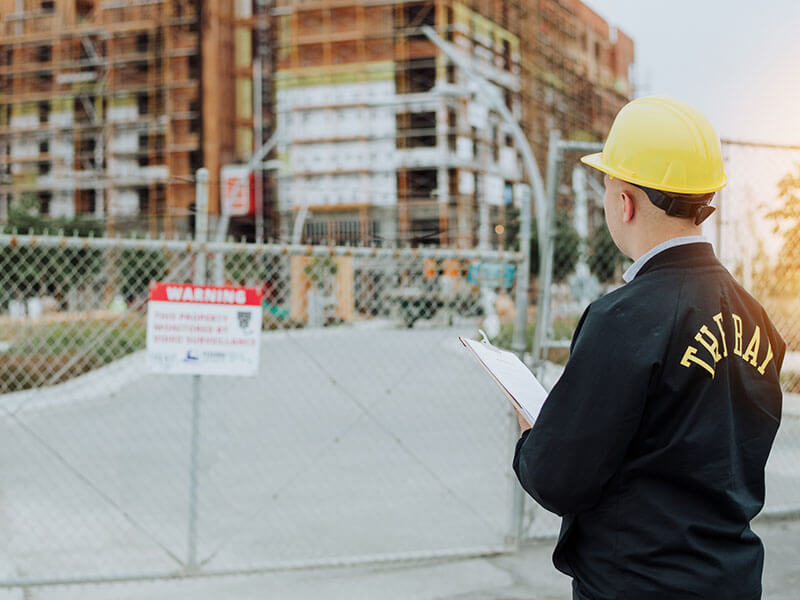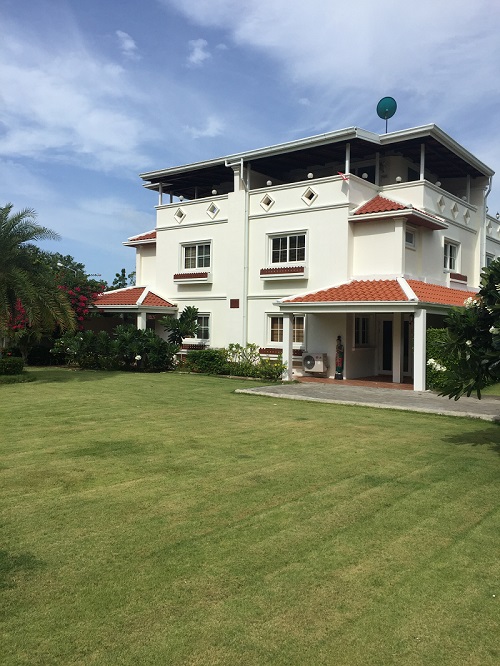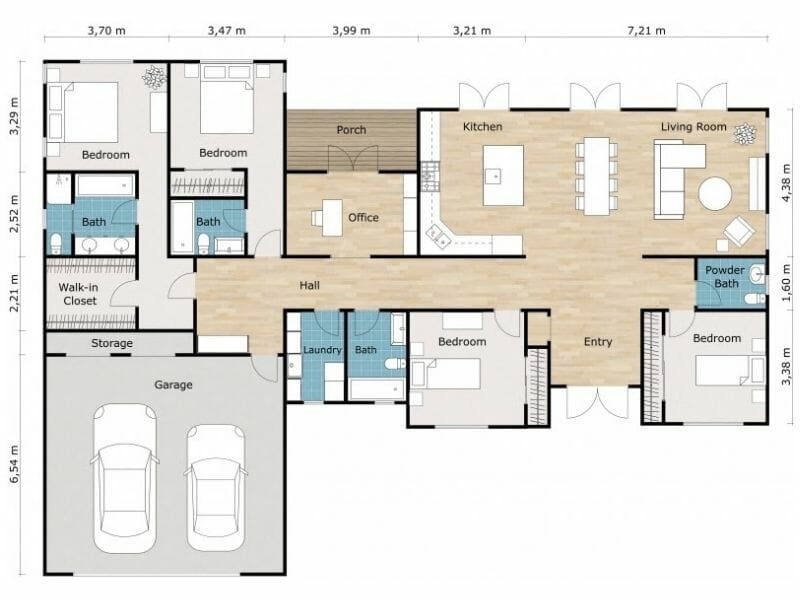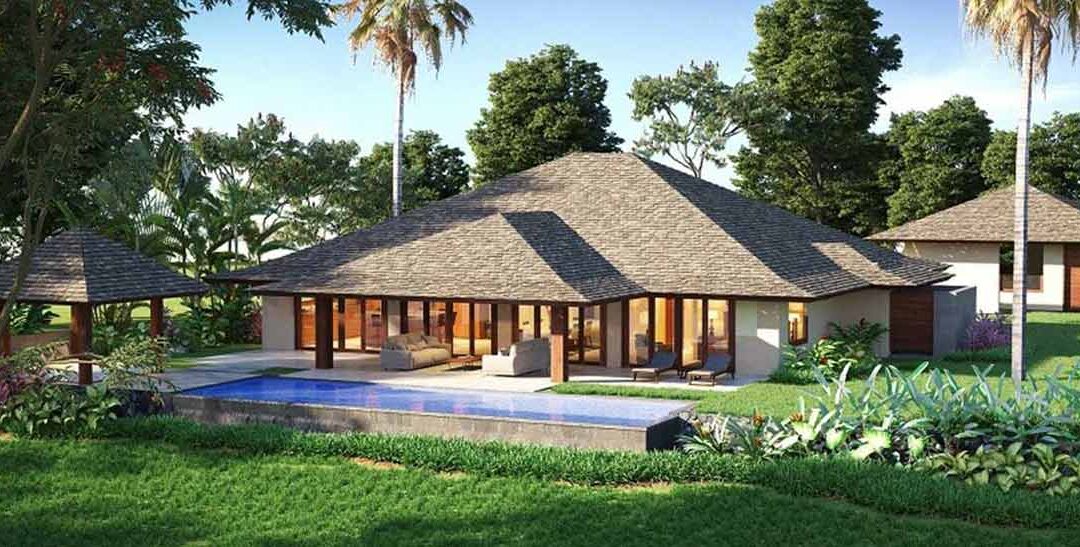What are the average building prices in Thailand and how much does it cost to build a house there?
Answer:
The type of project, what is being built, the architect’s drawings, the professionalism and caliber of the contractor, what is included in the construction price, the quality of the materials, site conditions, site location, and numerous other contributing factors all affect construction costs in Thailand. The price of construction varies anywhere in the world, including Thailand. This question doesn’t have an immediate solution.
Each project is unique based on its design, setting, requirements, components, contractor participation and input, and level of complexity. You need completed architect drawings, precise specifications, and a list of all the building supplies to determine pricing. The location and circumstances of the land site are equally important to know. Additionally, each contractor may offer a unique service and include or exclude a variety of goods and services.

It’s possible that one contractor is more skilled than another; it’s also possible that they provide real promises that they honor, appropriate standards, and skilled project management. Perhaps the supplies they provided are of a higher caliber and are what should be used for the project. For the duration of construction, they might purchase project insurance; another company might not. Numerous factors influence construction costs and cause cost variation.
In order to determine correct expenses, one must first be aware of all the relevant information. Because of this, some professional construction contractors won’t quote approximate square meters (sqm) pricing; instead, they’ll wait until they have all the information they need to give a professional, precise construction cost quotation.
If you’re thinking about developing in Thailand, you need to be aware of all the factors that go into expenses and comprehend why estimates differ. Without knowing or comprehending what is covered and what determines building costs, it is all too easy to assume that one construction contractor is more expensive than another or that one is less expensive. The contractor you believe is expensive can be the one you need to contact if you want a work done right and professionally. They can be providing you with a quote that is accurate and competent and covers everything necessary to complete the building successfully.
Lowball quotes in construction are occasionally given merely to secure a job. However, if the contractor is unable to complete the project because of underquoting, it could result in serious issues for the client. It might be a catastrophe in the making, costing you millions of baht in problems, poor construction, and corrections. Or it might be okay. Without a thorough comprehension of all the cost information and what is or is not included, it is impossible to know. How well you get along with the head person is a different consideration. It is critical that you get along well with and feel at ease dealing with the key individual. It can be a very good sign if they are receptive, communicative, and you can tell they are genuinely trying to assist you. Do exercise caution, comprehend costs, and the varying standards of services offered by contractors.
A different cost-related issue is that construction costs in Thailand have increased over time due to significant material cost increases, which are partly attributable to the sharp increases in the price of oil and gas. The minimum wage was raised in 2013, as well. The majority of the world’s markets have seen price increases, particularly as a result of changes in the price of oil and the massive demand for resources from developing countries.

Thailand continues to have cheaper construction prices than many other nations, providing exceptional value. Naturally, one must also take into account the fact that contractors have no control over currency exchange rates or rate fluctuations, so keep that in mind when assuming costs are high if you are converting foreign currencies into Thai Baht. In Thailand, you may still get a decent house for less money than in many other places. A general guide to construction costs is provided here. It is a good place to start.
Please take note that the construction costs we present here are simply intended to be a rough reference, and you must conduct your own research. Before you have all of the completed architect drawings, all of the specifications, and all of your material choices known, neither we nor you will be able to estimate the costs. We are only able to offer rough guide prices. As we have stated, each project is unique, thus pricing per square meter provided without comprehensive architect drawings and all parameters known are only intended as a general guide. Another thing to keep in mind when talking about expenses per square meter is that they vary from room to room and space to space. For this reason, using costs per square meter early on should only be used as a rough reference.
Construction Costs in Thailand: An Approximation
A basic guideline would be a minimum of 25,000 to 30,000 baht per sqm, easily escalating to 40,000 baht per sqm for a finished house of decent quality, with full set out (excluding kitchen), to be built by a contractor with some supervision (Foreman or project manager). A luxury residence may start at 40,000 Baht per square meter. However, a builder cannot begin to determine accurate costs until all architectural drawings are complete, all materials are known, and a site visit has taken place.
Please be aware that this is simply a rough guide. The expenses are also heavily influenced by the location; if you are on an island like Koh Samui or Phuket, you can expect the costs to be higher because numerous components need to be transported to the island. As most areas require deep piling and there are high traffic costs to take into account, this is true even in central Bangkok.
Question:
Why do some contractors in Thailand charge more than others?
Answer:
There are a number of potential causes; the first is the one from which we would all likely draw the conclusion that they are pricing excessively and generating more money. But choosing who to use is entirely up to you; you can base your choice on careful consideration and independent judgment. The fact that one contractor is more expensive than another does not necessarily mean that they are more expensive in general. It could be because they offer more than others, which could result in higher costs, and because the quality and standard of service are better. It’s possible that their cost is reasonable and represents the true expense of completing your job to a standard you’re satisfied with. The more expensive builder may offer project management, as any qualified builder would. \
Additionally, it’s possible that the level of finish is higher and that the higher-priced materials were installed by better-qualified craftsmen. They might also be pricey. Nobody can know till they investigate and comprehend their costs. It is difficult to just compare prices and conclude that one is pricey because it costs more or that one is less expensive because it could not be as excellent. It’s possible that the higher price is appropriate and the lower price is of inferior quality. It’s also possible that the lower price is acceptable if proper supervision and inferior materials are used, or that the finish provided by the tradesmen is below par. The process of determining prices and expenses is complex. There are heartbreaking tales of folks who cut corners and end up with nothing but issues and more expenses. But there are also positive tales. Consider pricing carefully, and carry out your own research. Examine the costs and make sure to check. You have the freedom to decide.

To put things into perspective, consider why, for example, fruit at one grocery costs more than another or why a hotel costs more than another. That response is widely known. It could be because the fruit is better, the service is better, the quality of the shop or hotel is better, etc. This is true for many goods and services, including cars. Don’t therefore assume that a contractor is bad or pricey simply because the pricing is cheap in the building industry. That is not always the case, nor is it as straightforward as that. There is a cost associated with getting top quality and good service, as is only natural. Check what they offer, meet the contractor, have a conversation, and then come to your own conclusions using your own deductions. Like in any other nation, making the right decision can save you a ton of money on repairs, extra expenses, and hassle!
Easy Guide to Approximate Construction Costs
When determining precise construction costs, there are many factors to take into account. Complete expert architect construction drawings are needed, as well as a thorough understanding of all the requirements and materials, site circumstances, and location. However, to assist you, we have compiled some fundamental approximation guide figures. As we’ve already mentioned, construction expenses in Thailand are not fixed and constant. Please only use this as a ‘approximate guide’ as they vary.
Standard House: Standard Homes start at a minimum of 25,000 Baht per square meter.
As of the current year (January 2023), the approximate cost guidelines (ballpark figures) for constructing a lower-end home in Thailand with a small group of local builders up country using standard materials, including roof, walls, doors, floors, and bathrooms, would be anywhere from perhaps 25,000 baht per sqm. Because this market is at the lower end, exercise caution. Although you may have high expectations, the quality, reliability, and professionalism you receive may not live up to them. This may not be a good enough quality for some people, but it is acceptable for others. We all have different thresholds for what we deem to be acceptable quality. Some people would want to choose a qualified building company with qualified standards and management. Some people have lower standards. Make your own decisions; it’s not up to us to tell you what to choose. For further information on this, see below.
Starting at a minimum of 40,000 Baht per square meter, a luxury home
A house of reasonable quality, constructed in Thailand by a qualified contractor under qualified supervision, would cost between 30,000 and 40,000 Baht per square meter as of January 2023. Luxury might begin at around 40,000 Baht per square meter. This could include a finished home with doors, windows, a roof, basic bathroom fixtures, and flooring, but it might not contain air conditioning units, appliances, kitchen design, and furniture. The price to build a house in Thailand might range from 30,000 to 37,000 to 40,000 to 50,000 baht per square meter, depending on the specific project. Everything depends on the home’s requirements, the supplies utilized, the site’s location and conditions, and the architect’s plans. Anything priced below 25,000 Baht per square meter may be made of potentially very inferior materials and may not have been constructed by a professional construction company that offers project management, insurance, acted-upon guarantees, and all other things necessary, which can be crucial for a proper professional standard of build. But it might also work out. However, everything depends on the building contractor, the location, the architectural plans, and the requirements. And, of course, your own expectations. Please just use this as a rough guide.
A decent quality finished house with acceptable standards comparable to those in the USA, Europe, and Australia, among other places, might cost a minimum of 30,000–40,000 baht per square meter, according to our research into the Thai house construction industry and interviews with numerous construction professionals. Luxury residences could cost up to 40,000. But it all depends on what is included in the price and what the builder is told by the architect’s drawings. Always keep in mind that the cheapest quotes might not always be the best and might even be harmful. Or they might be alright. At this point, we are unsure because we lack sufficient information to draw any conclusions.
Always keep in mind that if you want high-quality, professional building services, you must be prepared to pay for them. Be prepared to pay for it if you want to minimize difficulties, avoid poor workmanship, reduce additional expenditures resulting from poor building, and maintain high standards. Every house is unique, thus it is impossible to estimate the cost before having all the details. Prices range. Like anything in life, if you demand high standards and good quality, you must be willing to pay a price for it. Professional help is expensive, but it might be worthwhile in the long run. Until you have all of your finished professional drawings and you have performed your own due diligence, no one can know at this time. This is merely a rough guide meant to be useful.
Construction Estimates for Other Styles of Buildings
High-rise residences and condominiums
The cost of a premium condominium’s “Full Fit Out” can start at a price of between 35,000 and 45,000 Baht per square meter, while the cost of an average condominium’s “Full Fit Out” can range from 25,000 to 30,000 Baht per square meter.
Factories and offices
Offices and industries vary as well, but as a general rule, prices might range from 25,000 to 35,000 Baht per square meter.
Hotels
3 Star Low-Cost Hotel with F.F. 5 Star Luxury Hotel, &E 40,000 to 50,000 Baht per sqm, including F.F. & E 60-70 Baht per square meter
Cost Information
What the prices might be till the architects’ plans are finished is only an educated guess. Every project is unique, therefore without the architect’s drawings, a thorough comprehension of the specifications, and a complete inventory of all materials to be utilized, a builder cannot estimate costs or possibly know them. The property’s location, the state of the land site, and the intricacy of the project all have an impact. If you do not have architectural designs completed, talking expenses is at best only a rough estimate.
The builder must know a lot of details in order to estimate prices, including: What kind of building is it? Is that a house you’re constructing? Which housing type is it—a cheap one-wall hut with a Thai-style kitchen, a four-bedroom, two-story home with a cavity wall, or a lavish villa with insulating block, a European kitchen, and a pool? Or is it a condo that will be offered for sale on the luxury market? Or is it a complex of shops, offices, or factories? Is it necessary to pile up the manufacturing floor because large machinery is being installed, etc. What exactly is involved, and what are all the requirements needed to finish the project?

Construction costs vary. Not every house is the same. Not every project is the same. It requires careful execution because it is fairly intricate. Without first having all the data and information, you cannot accurately estimate a cost. So be cautious when estimating costs before you have all the information and facts. The aforementioned brief approximation is just that—a guide. Once the architectural drawings are finished, you should have the builder accurately calculate the cost, or you should ask the architect to do a full cost for you.
What is the project’s location? Expect the costs to be greater than in Bangkok if it is on an island or far from the source of the goods, necessitating the shipping of the materials or additional delivery fees.
Why can’t we find out the price before the architect finishes their drawings?
We lack the necessary data to determine costs. If you don’t know what kind of roof tiles you want, how can anyone estimate the cost? Which doors you desire. Do you prefer insulation blocks or cavity walls? Do you have five or ten electrical outlets in each room? What kind of electrical plug socket is it, and who is the manufacturer? What kind of flooring do you intend to use? Is the structure one or two stories high? Which kind of roof do you prefer? What kind of bathroom supplies are you looking for? Are the flooring made of pricey wood or extensive tiles? What brand or substance, and what kind of tile? How far into the ground must the piles be placed? Costs cannot be determined until all the materials, options for products, codes, and quantities are known. A cost is often completed by a professional cost person, such as an architect, builder, engineer, or quantity surveyor, and takes 2-4 weeks or more to complete properly.
You must commission expert architects to prepare drawings in order to determine exact expenses.



